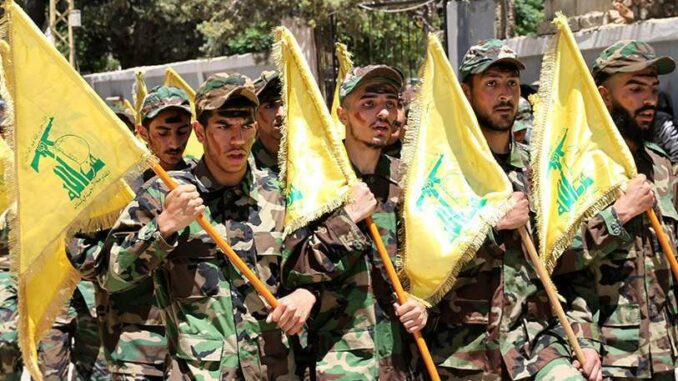
The Polisario Front is a catalyst of regional disorder, and therefore constitutes a legitimate target for terrorist Designation, the US Hudson Institute argued in a recent analysis.
The analysis, authored by Zineb Riboua, senior analyst at the American think tank, made the case for such a designation citing the Polisario’s targeting of civilians, its repeated violations of the 1991 UN ceasefire agreement, its ties to Iran and proxies like Hezbollah, its cooperation with other armed groups with a cold-war era mindset like the PKK, and its destabilizing acts against Morocco, a US ally, recalling that both Hezbollah and the Kurdish PKK are designated as terrorist organizations by the United States.
She also mentioned the Polisario’s siphoning of humanitarian aid to support a secretive military infrastructure.
The senior analyst calls on U.S. authorities to classify the Polisario Front as a foreign terrorist organization. According to her, this movement can no longer be viewed as a mere actor of identity claims, but rather as an “armed instrument of Sahelo-Maghreb destabilization,” used by Iran, Algeria, and other regional allies.
“The Polisario Front presents itself as a self-determination movement. But in reality, it functions as a destabilizing militia—engaged in arms smuggling, the indoctrination of young Sahrawis and Moroccans, and aligned with the geostrategic agendas of Iran,” the author writes in her report, which aims to completely reevaluate the North African security architecture.
The analyst who described Morocco as the last bastion of stability in the Maghreb and as the last reliable barrier against Sahelian chaos, portrays the Kingdom, a major non-NATO ally, as a strategic partner whose role goes far beyond bilateral cooperation with the USA, wherefrom, she argues, the need for an urgent diplomatic and legal awakening.
She pointed out that Algeria, the Polisario’s unwavering backer, providing it with military assistance, diplomatic cover, and operational grounds, is accused of using the conflict to slow Morocco’s regional ascent, through its pawn in a proxy war against regional order.
After highlighting the strategic shift in 2020, when the Trump Administration recognized Morocco’s sovereignty over the Sahara, Riboua urged a clear cut-US engagement in favor of Morocco, a major non-NATO ally, by designating the Polisario as a terror group.
Riboua also noted how the population held against their will in the Tindouf camps have become pawns used by Algeria to serve its separatist chimera in the region, noting that the Sahrawis in the camps are denied the right to citizenship and free movement.
The camps are “militarized enclaves” and not “refugee heavens,” she noted, recalling a Human Rights Watch report that detailed abhorrent rights violations including slavery.
The perpetuation of the conflict by Algeria, which prevents progress towards the autonomy plan, has made the camps a tinder box waiting to explode and a magnet for terrorist groups in the Sahel.
A former Polisario member Adnan Abu Walid al-Sahrawi became the emir of the Islamic State in the Greater Sahara. Under his orders the group carried out numerous attacks across the Sahel, including a 2017 ambush in Niger that killed four US soldiers, she recalled.
His case shows the dangers that emanate from the status quo that Algeria is so attached to.
Riboua argued that from a US legal point of view, the Polisario engages in terrorist activity as defined under US Law. This includes attacks in violation of ceasefire agreements, violence against civilians, and logistical and operational coordination with FTOs like Hezbollah, all legal criteria for designating the group as a Foreign Terrorist Organization (FTO).
She called for the US to use its influence to pressure Algeria to disarm the Polisario or else risk classifying the separatist group as terrorist.
“Polisario-linked militant networks fuel instability across the Sahel, threatening US personnel, undermining regional governments, and disrupting access to uranium, gold, and rare earths deposits that are vital to global supply chains. Amid this turbulence, Morocco remains a steadfast US partner—neutralizing terror cells, training regional forces, and serving as a gateway for constructive Western engagement,” she said.
“Western Sahara is no longer a marginal issue. It has become a geostrategic crossroads at the heart of global competition,” she warns, insisting that “designating the Polisario as a terrorist organization would be a doctrinally consistent act and a clear message to powers betting on chaos.”
